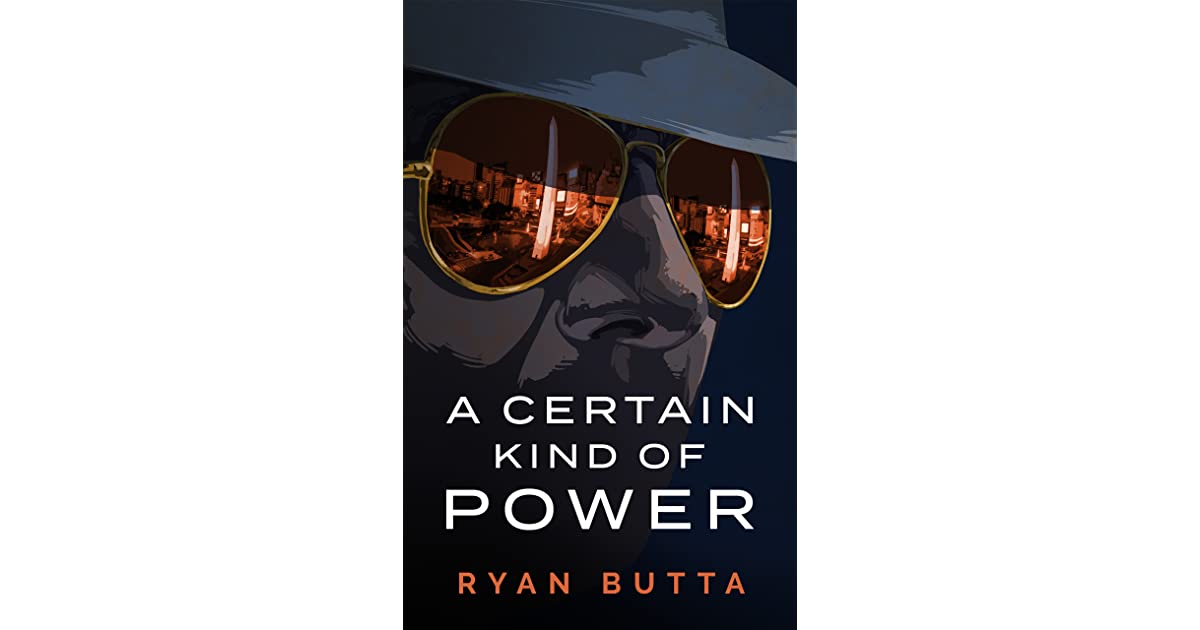
‘A Certain Kind of Power’ is an entertaining dissection of corruption, in which Australian author Ryan Butta recreates an Argentina of scandals and cloak and dagger moves. Our guide in the county’s capital, Buenos Aires, is Mike Costello, a jaded American corporate spy. An aging one-time army man, Mike has been in Argentina too long for his own good and has a love/hate relationship with Buenos Aires.
“Regardless of her slow decay, Buenos Aires radiated a beauty and an arrogance in the face of the inevitable that bewitched Mike. He admired the city’s refusal to give in, but he would listen to her lies no more.”
Mike knows what goes on beyond the surface and that makes him useful to other foreigners who turn up in Argentina without a clue. The book starts with Mike going to a football game in Lanus, a gritty district to the south of the Capital Federal. The game ends in a riot and the police, paid off by the hooligans, do nothing to stop it. We don’t return to Lanus, Mike lives in upmarket Recoleta and deals with executives, government officials and embassy staff – but they too turn out to be corrupt.
The main plot revolves around MinEx, a British company hoping to set up a mining operation in Córdoba and build a railway to move product to the coast. The Argentine government lends MinEx one hundred and fifty million dollars to start the project. The problem is they insist MinEx uses local contractors at grossly inflated prices. MinEx executive Simon Quinn is a hothead with no clue how to handle the situation. Enter Mike, recommended to Simon as a man who can help by Alex Hammond from the British embassy. Mike in turn gets his information from a shadowy local figure known as the doctor. A number of twists and turns and dead bodies follow and Mike begins to figure out what’s going on like the protagonist in a detective or spy novel would.
As they sit in various bars and cafes, Mike recounts for Simon a lot of Argentina’s recent history – minimally fictionalised by Butta. This is interesting but slows the novel down. Butta has obviously waded through the political stories in many editions of newspapers Clarín and La Nación. In these pages scandals come and go at an alarming rate. Nobody can keep up.
Not set in an exact historical moment (but 2010 is about the best fit), a figure like the late Néstor Kirchner is president of Butta’s Argentina. The recounting of the saga of Néstor’s buddy Lázaro Báez (Butta changes the man’s name but nothing else) tells the story more clearly and simply than any newspaper article I’ve read.
“Mike explained that Zanetti was a close friend of the president and was a man who had made two very astute business decisions in his lifetime. The first was in 1990 when, while working as a bank teller, he leaked confidential bank documents to the mayor of Rio Gallegos, a small town in southern Argentina.”
And so, for Argentina enthusiasts the novel is great. I think it could hold some general appeal too, beyond didactic passages there is dark humour and some action.
The other important aspect of this novel is the detailing of everyday life in Argentina: The over-educated taxi drivers constantly complaining about the place going to the dogs, the service people ignoring you and the bizarre absence of change when you want to buy something. Butta gives us many examples of how Buenos Aires as a city looks great aesthetically but lacks the basics.
Reading this got me thinking about the difference between going to a café in New Zealand and Argentina. In Kiwiland, you go for the good coffee while the newspaper, consisting mainly of fluff, only takes five minutes to read. Most of the time I get my coffee to go. In Maradonaland, the café looks nice: classic wooden furniture, bowtied waiters – but the coffee is awful and the slow service makes you wish you could order at the counter like in New Zealand. The newspaper, however, will be full of information and take an hour to read. The single Mike glumly spends most of his time such cafes – occasionally he does enjoy himself with a good steak and whiskey – but more often he sits dreaming of leaving Buenos Aires for Sicily. Will the city let him go?
I was glad to find this noir novel set in Buenos Aires written by a non-Argentine. Phillip Kerr wrote a detective novel set there but his knowledge of the city was limited compared with Butta’s. There are many great local authors in Argentina of course, however, they tend not to write in this straightforward style, which sometimes I find myself craving.
